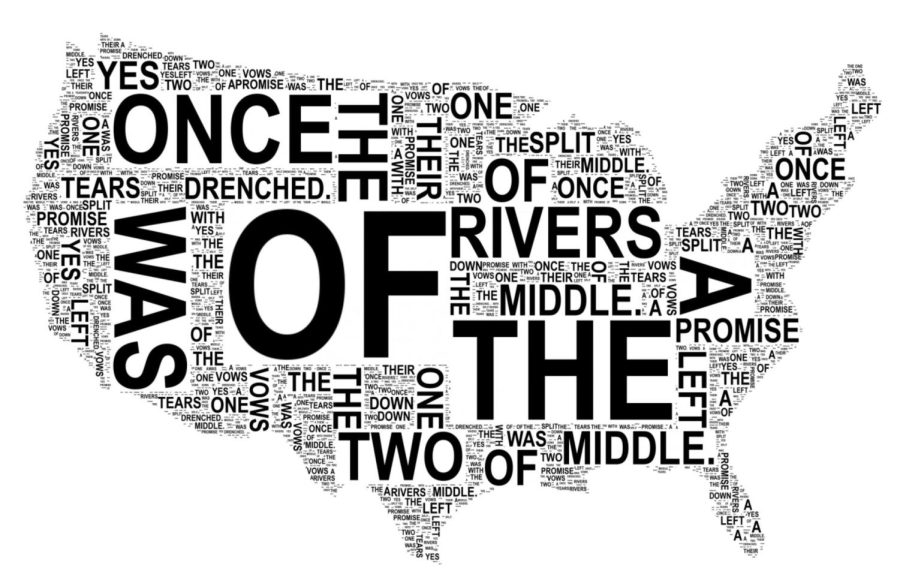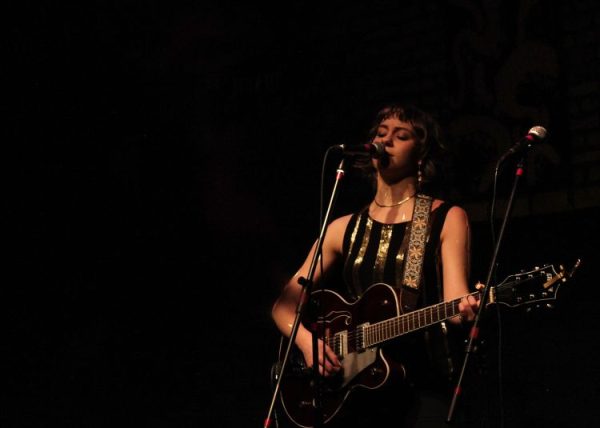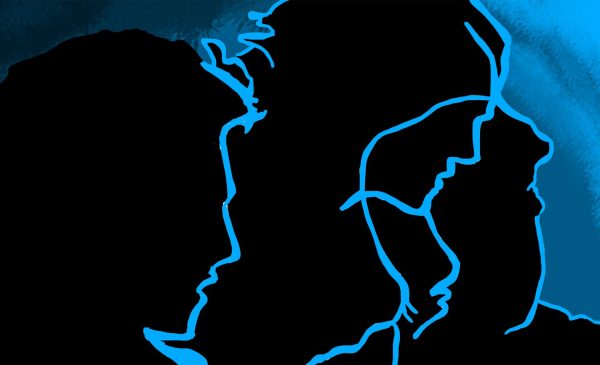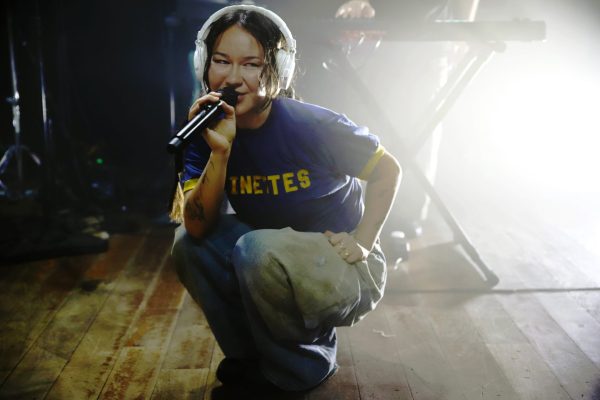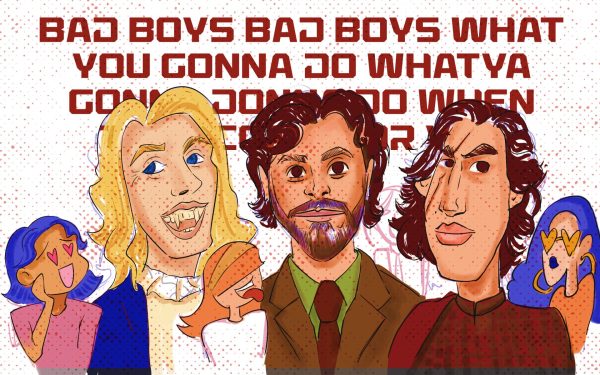Publishing people: “Virus City” and “American Gun” highlight students work at Printers Row debut
Lilly Keller for The DePaulia
The prospect of being officially published can be thrilling to even those who never considered themselves to ever be authors. From gaining credibility, to personal satisfaction, being published in college allows for individuals to not only bulk up their resume, but also express their interests and creativity through writing.
Last Saturday, Big Shoulder Books, DePaul University’s official publisher, launched two new anthologies, “Virus City”, edited by Rebecca Johns and Robin Hoecker, and “American Gun”, edited by Chris Green.
Each anthology features the work of graduate and undergraduate students alike, as they offer an intimate perspective of Chicago through the eyes of those who call it home.
Told through 28 perspectives, “Virus City” illustrates how the coronavirus pandemic impacted Chicagoians and affected the stability of day-to-day life.
Ironically, prior to the pandemic, “Virus City” was originally going to be about life in incarceration, where students put together brief narratives highlighting prisoners’ experience within Chicago prisons.
“It made sense that the pandemic itself would become the subject of the book,” Johns said.
As an associate professor and director of the graduate program in writing and publishing, Johns taught four classes on interviewing and producing narratives to generate content for the book.
“The working thesis we came up with as a group was that the pandemic was exacerbating inequalities that already existed,” said Johns. “With that kind of thought in mind, I sent them out via Zoom into neighborhoods mostly on the South and West Sides, we were looking for underrepresented voices and people who do not normally get their stories told in the media and wanted a chance to explain how the pandemic has been affecting them.”
Interviews within the book range from business owners, parents, teachers and health care workers, allowing for an array of broad experiences within the city to be told.
Similarly, students were given loose guidelines when it came to locating interview subjects.
“For the most part, students came up with the subjects themselves, which ended up being really wonderful. They brought their own experience and understanding to the topics and to the people they were talking to,” said Johns.
One unique aspect to the anthology is its surplus of footnotes, allowing readers an intricate glimpse into the atmosphere of Chicago in 2020.
“I was very conscious with this book being a historical record of the time period and so I wanted to document what certain things were like the Chicago Teachers Union threatening to strike, or one subject talks about General Iron relocating to the south east side,” said Johns.
Burrowed in the middle of students’ transcriptions lie photos documenting how photojournalism students coped with both the pandemic and tumultuous social and political climate.
Amy Do, a recent graduate of DePaul explained how she got involved with the anthology after her photo journalism and environmental justice class went online.
“So what ended up happening was she changed all of the assignments to document our personal lives and basically take pictures of what we were doing and what we were eating and where we were working out and what kinds of interactions we were having,” Do said.
It was not until Do graduated from DePaul’s masters program that Hoecker reached out and asked if she wanted her photos to be featured in the book.
“This was my first experience seeing my work in print, so it is really cool to have something you know in this digital age that you can hold in your hand and share with family and friends. I also think it is a really cool way to show the skills I accumulated over my years at DePaul,” Do said.
Do’s photo collection is titled “Finding Beauty In New Places,” and features six images ranging from Vietnamese cooking, yoga and two young boys playing in a puddle.
“It is a community history, a collective work of normal people coping with the abnormal during a really unfortunate time in world history,” Do said.
Johns passed out hard copies of “Virus City” and “American Gun,” anthologies from Big Shoulders at Lit Fest.
“American Gun: A Poem by 100 Chicagoans” in 2020, but the themes of gun violence still persist. 100 Chicagoans from all over the city, particularly the South and West Sides, contributed to the poem.
Chris Green, Big Shoulders editor and DePaul senior professional lecturer, used poetry to personalize those affected by gun violence.
“It is the responsibility of artists to draw people’s attention to what’s important,” Green said. “I want people to understand that the arts can help. That they have something to offer in terms of meaningfulness.”
Chicago is notorious for being a city of gun violence, yet Green tries to dispute the narrative while reframing it.
“I think that alone lets you know how serious the situation is here,” Green said. “We are constantly hearing about shootings and gun deaths, but you only get the most superficial kinds of facts reported on the news or what have you. So this poem is able to provide the kind of personal detail and attention that’s often not represented in the media.”
Poet Ana Castillo was featured in the poem and reflects about how violence should be addressed.
“Our immediate needs could be rural, urban and address this issue and at some point this country has to come to some realistic terms that translate into action for the sake of our youth and our families,” Castillo said.
Green utilized the stanzas and composition called pantoum to create a statement about the themes.
“The form of the pantoum is such that every line in the poem is repeated twice,” Green said. “Lines two and four from one stanza that become lines one and three and the following stanzas on and on.”
The poem’s beat mimics a semi-automatic rifle firing.
“It also represents the seemingly endless round of gun deaths in the city,” he added.
By creating the anthology connecting individual’s by this one issue, it becomes personal to those unaffected.
“I hope that [readers] see that gun violence is a personal issue,” he said. “That their actual persons are not just statistics that are dying from gun violence. I think because of this ability to pay attention to the kind of nuanced detail and imagery that people deserve in these kinds of extreme situations.”
Both works are available for free online and at Big Shoulders.
Connect with Nadia Carolina Hernandez: @naddivz | managing@depauliaonline.com
Connect with Lilly Keller: @lillyraek | artslife@depauliaonline.com


